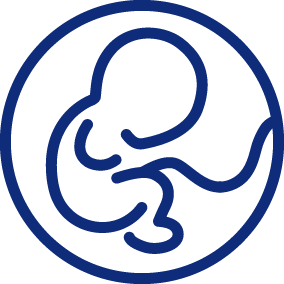Navigating endometrial complexity
Precongress Course 7
 Special Interest Group Implantation and Early Pregnancy
Special Interest Group Implantation and Early Pregnancy
Course coordinators
Danilo Cimadomo (Italy), Kilian Vomstein (Denmark), Linda Stevens – Brentjens (The Netherlands), Shari Mackens (Belgium), Nicola Tempest (United Kingdom)
Course type
Advanced
Course description
"Navigating Endometrial Complexity" is an advanced, multidisciplinary course designed to deepen clinicians' understanding of the endometrium's dynamic role in fertility and reproductive medicine. Through a combination of lectures, case-based discussions, and emerging research insights, the course explores the physiological, pathological, and molecular mechanisms regulating endometrial function. Special emphasis is placed on how these mechanisms impact assisted reproductive technologies (ART) and clinical outcomes. Participants will engage with the latest tools for endometrial assessment and learn how to individualise therapeutic strategies in complex clinical scenarios.
Educational needs and expected outcomes
A needs analysis identified:
- Gaps in the understanding of the endometrium as an active, dynamic participant in embryo implantation
- A lack of confidence in interpreting molecular endometrial profiles and tailoring therapy accordingly
- Limited familiarity with new technologies and biomarkers used to assess endometrial receptivity
- The course was thus designed to meet the educational needs of reproductive specialists seeking to update their clinical and scientific approach to endometrial evaluation.
At the end of the course, participants will be able to:
- Describe the cellular and molecular processes underpinning endometrial receptivity and dysfunction
- Identify clinical patterns and diagnostic approaches for common and emerging endometrial disorders
- Interpret results from advanced diagnostic tools such as receptivity arrays, histological assessments, and microbiota analyses
- Apply personalised strategies in ART based on patient-specific endometrial profiles
- Critically assess the current evidence supporting endometrial interventions and integrate it into daily clinical practice
Innovative aspects of the course
The course stands out for its integration of cutting-edge translational research with practical clinical application. Key innovations include:
- A multidisciplinary teaching model involving reproductive endocrinologists, molecular biologists, and pathologists
- Exposure to the latest developments in endometrial microbiome science, immune-endocrine crosstalk, AI-powered analyses, and regenerative therapies
Target audience
Basic scientists, embryologists, clinicians, nurses
Programme
Sunday 05 July 2026
09:00 - 17:00
PCC07: Navigating endometrial complexity
Sunday 05 July 2026
09:00 - 17:00: PCC07: Navigating endometrial complexity:
session 1: The endometrium: physiology & foundations
Linda Stevens Brentjens, The Netherlands
09:00 - 09:30
Endometrial physiology: receptivity and implantation
Francisco Dominguez, Spain
09:45 - 10:15
Endometrial compaction: the thicker the better?
Nicola Tempest, United Kingdom
10:30 - 11:00
Coffee break
Session 2: Ageing and the endometrium
11:00 - 11:30
The aging endometrium: is there a functional decline
11:45 - 12:15
Regenerative medicine and stem cell-based therapies for endometrial disorders
12:30 - 13:30
Lunch break
Session 3: Modern strategies for uterine diagnosis: AI, Imaging and Clinical Learnings
Linda Stevens Brentjens, The Netherlands
Chairperson to be announced
13:30 - 14:00
AI-algorithms in endometrial pathology
Patricia Diaz-Gimeno, Spain
14:15 - 14:45
Lessons from 3.000 cases: insights from post-pregnancy loss 3D ultrasound imaging
Nicolaj Bruun Brandt, Denmark
15:00 - 15:30
Coffee break
Session 4: Adenomyosis: how do we need to act?
Nicola Tempest, United Kingdom
15:30 - 16:00
Mastering diagnosis: how to get it right?
16:15 - 16:45
Treatment tactics: finding the best approach